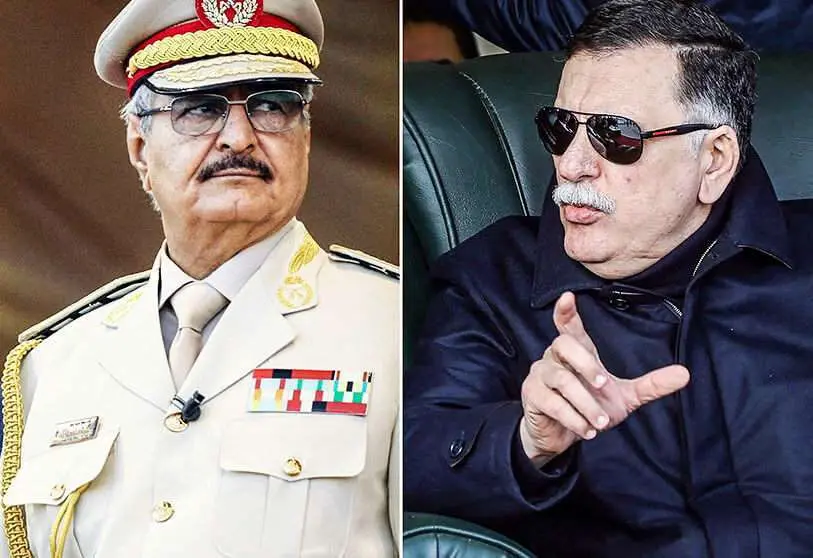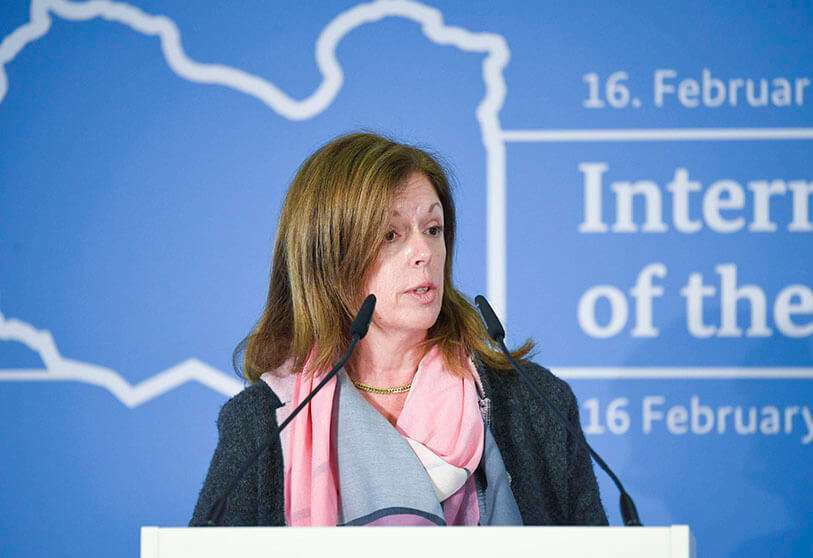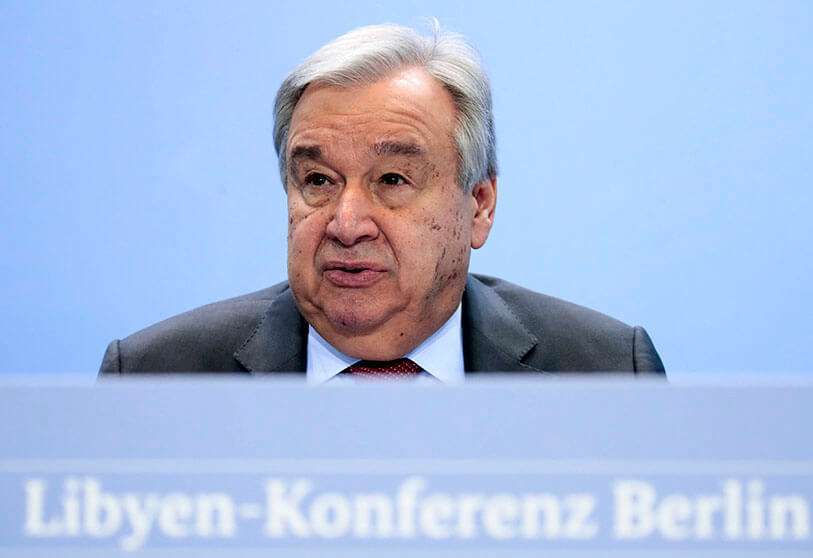United Nations announces acceptance of return to dialogue in Libya

The United Nations Support Mission in Libya (UNSMIL) reported on Tuesday that the parties to the Libyan war will give the green light to the resumption of the conversations with regard to the Joint Military Commission (JMC) 5+5 talks on the Berlin conference of January 19.
UNSMIL has positively received the position of representatives of the Libyan National Army (LNA) led by Marshal Jalifa Haftar and the Government of National Accord (GNA), The government has urged Prime Minister Fayez Sarraj to accept a return to ceasefire contacts in order to end a civil war that has been raging in the North African country since 2014, pitting both sides against each other in a nation that has been living in permanent instability since the overthrow and death of Muammar al-Qadhafi in 2011.
This scenario opens without official confirmation yet by the rivals; while the fighting between the two factions continues, the last of which allowed the Haftar Army to take the city of Al-Asaba, after it had lost to the Sarraj militias important enclaves such as Sabratha and Sorman.
The LNA is seeking to take Tripoli, the last major bastion to be held by the GNA, which has been internationally recognised by the UN since 2016. Jalifa Haftar argues his action under the pretext of wiping out jihadist terrorist elements housed in the Tripolitan capital and subsequently carrying out a democratic process. Meanwhile, Prime Minister Sarraj denounces what he sees as a rebel coup d'état against legitimate power.

The GNA was cornered until last year, but for several months it has been receiving the support of Turkey, a country that entered Libya after the agreement signed by President Recep Tayyip Erdogan and Fayez Sarraj at the end of last year, which agreed on the assistance of the Turkish army and pro-Turkish mercenaries from the Syrian war (limited to former affiliates of terrorist groups such as Al-Qaeda, as various media have pointed out). A pact that also meant the distribution of economic areas in the Mediterranean valuable for gas and oil prospecting; which provoked the protest of Cyprus and Greece before the international community for the violation of their own maritime borders.
Turkey has so far sent more than 11,000 mercenaries, most of whom are Syrian, to Libya, along with several thousand other extremists who could soon be transferred to Tripoli, according to Rami Abdel Rahman, director of the Syrian Observatory for Human Rights (OSDH), a UK-based organization that has an extensive network of informants on the ground.
Just at a time when the Libyan war conflict has become a struggle of interests of several foreign powers interested in a country like Libya, very important because of its oil reserves and its location in the Mediterranean arc. On the one hand, the GNA is supported by Turkey, Qatar and Italy; on the other hand, the LNA is supported by Russia, France, Saudi Arabia, the United Arab Emirates and Egypt.
The UN mission stressed that the expected return of the parties to dialogue is a response to the desire and calls of the vast majority of Libyans who want to return to a safe and dignified life as quickly as possible. In an official statement, UNSMIL expressed the hope that the response of those involved would be accompanied by a cessation of hostilities.
It also expressed the hope that all parties, Libyan and international, would respond to the desire of the Libyans to end the fighting and that the resumption of the Military Commission talks would mark the beginning of a calm on the ground and a humanitarian truce to allow a final ceasefire agreement to be reached.
The UN, in the person of its Secretary General António Guterres, has already called for a ceasefire in the war in Libya and in other conflicts around the world to address the current global health crisis triggered by the spread of the COVID-19 disease. The United Nations is calling for an end to the clashes so that the authorities can meet the urgent humanitarian needs in the North African country.

Along these lines, UNSMIL called on the parties to the conflict and the countries intervening from outside to abide by what was agreed at the Berlin conference, which meant the implementation of security, political and economic avenues to resolve the problem. At the meeting in the German city, Sarraj and Haftar (former member of the military leadership of Gaddafi) agreed on a "comprehensive plan" for the solution of the war conflict, with the implementation of a ceasefire and a verification commission made up of both parties to ensure that it was not breached. After this, violent episodes occurred again and Turkish President Recep Tayyip Erdogan even accused Marshal Haftar of violating the decreed ceasefire and "playing dirty". Haftar himself, allied with the other executive in the eastern city of Tobruk, has received proposals for a ceasefire, but he understands that the superiority of his armed forces should not be ignored and that they are not at the same level as the GNA.








